- Home
- Keri Arthur
The Black Tide Page 3
The Black Tide Read online
Page 3
Tears stung my eyes, but it wasn’t just the memories. It was the knowledge that if the déchet children who were being created in this place in any way contained wraith blood, then I would be forced to commit an act as unthinkable as what the shifters had done to the children in my bunker. It didn’t matter if that death came to them now, while I was here, or later. Didn’t matter if it was far kinder than the death the shifters had given to my little ones—the fact was, I’d be killing children when I’d sworn on that day so long ago to never, ever let harm befall a child if I could at all stop it.
I drew in another shuddering breath, then resolutely turned away from the pods and went back to the crates. To know for sure what I might be dealing with, I first had to get into the research area. My best chance of that was hitching a lift. While all the crates were well battened down, my energy form didn’t actually need anything more than a small hole to squeeze through. After a quick search through the various stacks, I found a crate with a small knothole and slipped inside. It was jammed with smaller boxes, most of them seeming to contain various chemicals, none of which I was familiar with.
There was no room to regain flesh form, so I hovered in the small, dark space and hoped I didn’t have to wait too long before the crates were moved.
Eventually, the growing splutter of an old engine indicated a vehicle was finally approaching. Light speared through the small knothole and sent me scrambling backward, but it disappeared almost as quickly as it had appeared. Headlights, I realized. The truck must have been turning around. After another moment, gears ground and brakes squealed as the truck came to a halt. A door opened, and then a second engine started up, this one more a whine that spoke of an electrically powered vehicle.
One by one, the crates were loaded up, mine included. A quick check via the knothole revealed the pallets holding the pods were being placed into the truck. With that done, the tailgate was lifted into position, and a canvas curtain dropped back down, though not secured. I slipped out of the crate but didn’t immediately regain flesh form, still worried about the possibility of biosensors hidden within the walls. There were some parts of my bunker—parts that had once only been accessible to our creators—that had certainly had them, as had the labs in the other old bunkers that Dream and her cohorts had been using.
The driver climbed back into the truck, and with the gears grinding in protest, the vehicle was soon rolling forward again. As we drove under the arch and into the tunnel, I peered past the curtain again. I’d guessed right—there were sensors. Given they hadn’t gone off, they must have been tuned to flesh intrusion rather than matter.
The tunnel swept around to the right and darkness dominated for some time. I couldn’t see any guards but I had no doubt there were. And if this tunnel did lead to the laboratories, there’d surely be other measures, too.
Gradually other sounds intruded over the rumble of the truck’s engine, all of which suggested we were nearing a secondary loading dock.
Time to risk leaving the truck.
I slipped past the heavy canvas and moved to the thick shadows that lined the left wall. Up ahead, the tunnel gave way to a brightly lit circular receiving bay—although, just like the first one, there were still spots of darkness hugging the outer walls and the various exits. There were also people and forklifts everywhere, and plenty of visible guards. I stopped at the tunnel’s mouth to get my bearings as the truck swung toward a small loading dock on the right. The information I’d taken from the guard’s mind had been rather sketchy when it came to this area, but it didn’t really matter. These tunnels were all signposted. The one I wanted—nursery and development—was the second tunnel on my left.
I flexed fingers that held no flesh and pushed away the trepidation that rose within me. It was no use fearing what I might yet have to do without first knowing if there was any reason for that fear.
I slipped around the corner and rose to the ceiling, where the shadows were thicker and there was less chance of guards—hidden or not—sensing my presence.
The entrance into the nursery tunnel was packed with sensors. Two guards stood on either side of the gateway, their expressions bored and stances relaxed. I hesitated, and then sped through the gate, pressing myself flat against the rooftop in an effort to avoid the biggest mass of sensors that lined either side of the tunnel.
No alarm sounded. Relief flowed through me, but it was a fleeting thing. The goddess Rhea might have favored my mission so far, but even she could only extend so much good fortune before the axe fell.
This tunnel, unlike the others, ran straight, and I sped along it, my fear and trepidation increasing the deeper I got.
In the distance, light flared. It wasn’t the puddled yellow lighting that was everywhere else, but rather a bright light that held a bluish tinge. I knew that light. It was the same one they’d used in all the nurseries at my own bunker.
Please, please, don’t let these nurseries be occupied....
The tunnel opened into a small antechamber. There were four metal doors leading off this, and above each was a simple number. There was no indication of what might lie beyond any of them, and all the windows were opaque. There were no cameras, either, and nothing to suggest this place was, in any way, being monitored.
Which was decidedly odd—and rather unnerving. Luck was a fickle thing at the best of times, and Jonas and I had certainly had our fair share of it over the last few days. I couldn't help feeling it was about to run out, and I could only hope that was born of fear and pessimism rather than instinct.
I halted in the shadows and listened for any indication that there was someone nearby. If they were breeding déchet, then there would have to be technicians and doctors here, at the very least, even if the place looked and felt empty.
After a moment, I heard a faint rasp—someone breathing a little too heavily. It came from the darkness hugging the right edge of the antechamber. I reformed my right hand then raised the dart gun and fired.
I waited, my gaze on the antechamber and the doors rather than the shadows. After a minute or so, there was a soft thump as the guard collapsed. Tension knotted my particles as I waited for some kind of reaction, but the silence stretched on, empty of both life and threat.
It shouldn’t have been this easy to raid this place. Not after Sal’s death and the loss of Winter Halo. Even Dream couldn’t be so sure of this place’s location and invisibility that she’d kept security at a minimum rather than ramp it up.
I released the shadows that hid me and regained form as I dropped to the ground. But as I stepped into the light and started to create a light shield, the door to my left slid open and a man stepped out. His gaze swept past me then abruptly returned. “What the hell are you doing here, soldier? This is a restricted area.”
Though he was frowning, his expression was more annoyed than suspicious.
I quickly hid the dart gun behind my back. “I know, but I was ordered to bring this pack down to you. We retrieved it from the rift this morning.”
“This is well outside usual protocol.” His frown deepened as he motioned me forward. “Who gave you the order?”
“Martin.”
“He hasn’t the authority to issue such an order. Give me that pack immediately.”
I stopped and held it out. As he took it, I surreptitiously fired. He must have felt it, because he immediately looked down, but thankfully the dart was hidden within the folds of his coat.
He opened the pack and pulled out the geo-locator. “Why the hell would Martin have sent this down here?”
I shrugged. “I’m just doing what I’m told. If you want answers, you’d best talk to him.”
“And I will. You’re dismissed, soldier.”
He started walking back toward the room, but stumbled and would have fallen had not a second man—this one wearing a white medical coat—caught him as he exited the room.
“What the fuck?” he said. “Soldier, help me get him back into the lab, will you?”
<
br /> I did. Once I was sure there was no one else in the room, I darted the second man. When he collapsed to the floor, I looked around.
There were no intrauterine devices and no cots in this lab, but my gut nevertheless twisted. It might not be a nursery, but I’d seen the equipment like this before and knew it to be a creations lab—the place where the DNA of tiny embryos was sliced and diced. I walked over to one of the many cryonic cylinders and unlatched the lid. Inside was a veritable test tube forest, all of them cells that could never be allowed to become anything more.
I closed my eyes for a second, the need to destroy the DNA within these tubes before they could become life warring with the knowledge that my main task here had to be uncovering how far along the creation scale these people were. The guards I'd ambushed certainly suggested they'd at least been partially successful in altering life, if not creating it, but lizard men who couldn't breathe without assistance weren't what Dream and her cohorts had been after. They wanted to erase the stain of humanity and shifter from this world. They wanted it to belong to the wraiths and vampires—the two races they now saw themselves as, thanks to rift intervention and at least one of them being a rare vampire survivor. And to do that, they needed a fighting force that could walk without fear in daylight.
But a creations lab generally wasn’t a part of that process as far as I was aware. It was about life—or rather, the manipulation of it. I owed my existence to a lab such as this, but I'd been one of the lucky ones. I'd survived into adulthood, when hundreds, if not thousands, of others had not.
This place—and these cells—had to be destroyed. Had to be. But I had no doubt alarms would sound the minute I took any direct action to either destroy or otherwise interfere with the cylinders. I needed to uncover what other horrors might lie in the remaining laboratories before I decided what action—if any—I took next.
But not before I took some precautions. The feeling that my time was swiftly running out was growing, and I needed to ensure this place—and the other labs—was destroyed if the worst happened and I was either captured or killed.
I dug one of the RTX devices out of the pack and pressed it up into the bottom lip of the nearest table. Like all plastic explosives, this one was extremely pliable but had the advantage of the detonator being inbuilt. I linked it to the remote firing mechanism then called the light to me and walked out to the next lab. There was a security panel to the right of the door—one that was both a fingerprint and iris scanner. I swore and headed back to the first lab. While such security measures weren't surprising, it was nevertheless frustrating. The longer I spent in this place, the more likely it was that my presence would be discovered.
I hauled the first man upright and half carried, half dragged him across the antechamber. I shoved one hand against the scanner then forced an eyelid open. The scanner did its work and the door opened.
The room beyond was large and bright, filled to the brim with medical equipment. There were also another two doors, one that led into an office and monitoring area, and another that led into a second lab. This room was also occupied. Not only were there three scientists and a guard, but also four rows of neonatal cribs and a final row of what could only be described as restraint cots. Any hope that they were all empty quickly died, not only because I could see small forms in the cots, but because the light screen monitors above each one were emitting the soft sound of heartbeats.
I let the scientist fall to the floor, half in and half out of the room, and then quickly stepped over him and moved to one side. My light shield shimmered slightly as it adjusted to the bluer light within the room, but none of the four people noticed—they were too busy looking at the unconscious scientist.
“Greg?” one of the other scientists said, then, when there was no response, swore and ran over. He bent and felt for a pulse, and then grunted. “Mark, help me get him into a chair. Betts, call the medics.”
As the woman walked over to a comms unit and the two men picked up the drugged scientist, I walked across to the nearest crib.
What lay inside was everything I hadn’t wanted to find.
It was a child. A physically perfect child.
A child with coffee-colored skin and the biggest smile I’ve ever seen.
But her almond-shaped eyes dominated her face and her nose was squashed so flat it was almost nonexistent. They were features I'd seen before. Features I feared.
This beautiful, happy little girl was born of wraith DNA.
Chapter Two
Rhea help us....
I closed my eyes and tried to contain the pulsing horror of not only what they’d achieved, but also what would inevitably come next.
Death.
Of this child, and of all the other children in the remaining cribs. Not just because of what they were, but because none of them showed any discomfort from the lab’s bright lights. My stomach churned at the thought, even if I understood the necessity of it.
And yet I couldn’t help but think of my own little ones, who’d never been given the chance at life simply because of what they were and the way they’d been created.
If we killed these children without thought, without even pause, then we’d learned nothing from the horrors of the past.
No doubt Nuri and her crew would say it was the horrors of the future they were trying to prevent.
The small babe gurgled, the sound so soft and merry it just about broke my heart. She reached up with chubby little fingers, and it was at that moment I realized she could see me despite the light shield.
I hesitated, and then lowered my hand into the crib. Her fingers latched unerringly onto one of mine, and her warm touch had my seeking skills flaring to life. There was no anger in this child, no hate. She was warm, comfortable, and happy enough, but she was also desperate for human contact. She wanted to be held—to be loved.
They weren’t unusual emotions for a child this young; even those of us born in the déchet program had wanted such things. Or, at least, those of us who remained capable of emotions had. Many déchet—but especially those designed to be soldiers—had been both chemically and physically neutered of any ability to think or feel.
But this little girl, with her big amber-green eyes that shone with intelligence, had not been mentally castrated—just as the little ones who haunted my bunker hadn't been. And, like them, her mental maturity seemed to be well advanced. She might be physically no more than five or six months old, but if what I was sensing through our connection was anything to go by, she was at least a couple of years older than that intellectually—if not more.
In fact, I’d go as far as saying there was a very old soul in this very young body.
Her grip tightened on mine, and I had this weird feeling she was trying to either tell or show me something. My seeking skills were dragged deeper into her mind, and what I discovered was a force as fierce as anything I’d ever encountered.
This child might have wraith blood, but she was also a seeker and a witch. While her power and abilities were at an embryonic stage, they were untainted and unrestrained, and promised to be a force every bit as strong as anything I’d seen Nuri produce.
But it wasn’t that she wanted me to see, but rather the fact she’d known I was coming.
That she saw me as her friend—her savior.
Me, the woman who’d been sent here primarily to scout the location, but also to kill any such finds as these children.
What was I supposed to do now?
I pulled my finger from hers. Her little face immediately screwed up and big tears welled in her eyes. I closed mine, took a deep breath, and then touched her chest lightly. I’ll be back.
Though I was empathic rather than telepathic, I had no doubt she’d understand me. The seeking skill we both possessed—the same skill that was in part the reason behind my ability to communicate with the ghosts in our bunker, be they young déchet or full-grown, fully trained soldiers—ensured it.
She made no further sound, bu
t those tears remained in her eyes, a silver glimmer that threatened to tumble down her cheeks at any minute.
The door opened and two men—one of them guiding a powered medical stretcher—walked into the room. They quickly examined the man I’d drugged then placed him onto the stretcher and walked out. I hoped the medical facilities weren’t close, because once they ran full blood work, they’d find the drug and the game would be up.
I quickly moved to the next set of cribs. Not only were this group of six older and sicklier looking, their features were decidedly more wraith in design. Their eyes were bigger—more almond shaped—than the little girl’s, and their mouths far smaller. Wraiths had no mouths at all—how they actually fed was anyone’s guess—and it once again suggested these four weren’t full-bloods. I gently touched the nearest child, but there was no response from him, either physically or mentally. All I felt was pain. Terrible, terrible, pain.
I clamped down on the fury that rose and continued to the next row of pods. There were four in this group and, once again, they were a few months older and even further along the scale of becoming wraith. Were the different rows of cribs an indication of development lots? Not only was the little girl far younger than any of these other children, she was also the most “human” looking of any of them.
But why was she the only one in her row? Had the rest of her group died, or was something stranger happening here?
I didn’t bother touching any of the children in the third group. There was no need to—not when the light screen readouts indicated that even with all the tubes inserted into their little bodies, they were barely alive.
As I moved across to the final row of cots, an alarm went off. The light screen above one of the restraint cribs—which held children who resembled full wraiths, right down to the gray, almost translucent skin, and who had no facial features other than their overly large eyes—was flashing red as the heartbeat monitor flatlined. The three scientists swore and immediately began instigating CPR and recovery procedures, but it was all for naught. His soul was already rising—it was almost as if he couldn’t wait to get out of his own body.

 Kissing Sin
Kissing Sin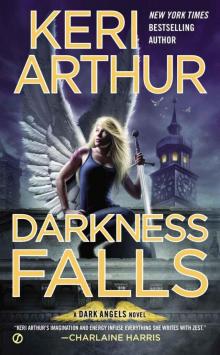 Darkness Falls
Darkness Falls Hell's Bell
Hell's Bell Moon Sworn
Moon Sworn Beneath a Rising Moon
Beneath a Rising Moon The Darkest Kiss
The Darkest Kiss Dancing with the Devil
Dancing with the Devil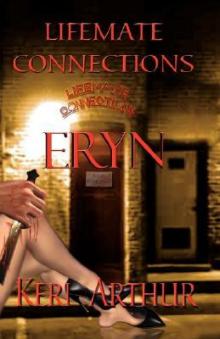 Lifemate Connections: Eryn
Lifemate Connections: Eryn The Black Tide
The Black Tide Embraced By Darkness
Embraced By Darkness Deadly Desire
Deadly Desire Tempting Evil
Tempting Evil Kiss The Night Goodbye
Kiss The Night Goodbye Bound to Shadows
Bound to Shadows Circle of Desire
Circle of Desire Dangerous Games
Dangerous Games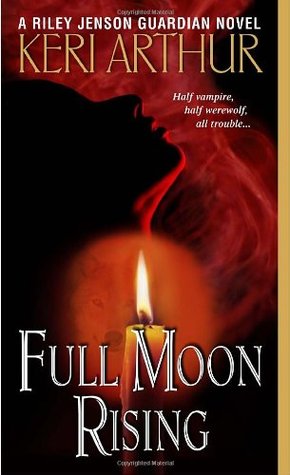 Full Moon Rising
Full Moon Rising Circle of Fire
Circle of Fire Darkness Rising
Darkness Rising Deadly Vows
Deadly Vows Darkness Devours
Darkness Devours Penumbra
Penumbra Who Needs Enemies
Who Needs Enemies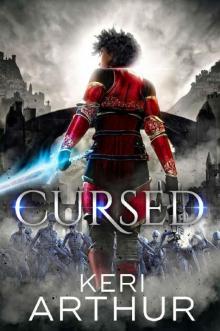 Cursed (Kingdoms of Earth & Air Book 2)
Cursed (Kingdoms of Earth & Air Book 2) Hearts in Darkness
Hearts in Darkness Darkness Hunts
Darkness Hunts Wicked Wings (The Lizzie Grace Series Book 5)
Wicked Wings (The Lizzie Grace Series Book 5) Circle of Death
Circle of Death Chasing the Shadows
Chasing the Shadows Darkness Splintered
Darkness Splintered Ashes Reborn
Ashes Reborn Demon's Dance
Demon's Dance Blackbird Rising (The Witch King's Crown Book 1)
Blackbird Rising (The Witch King's Crown Book 1)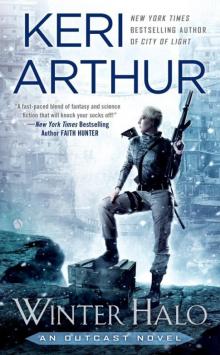 Winter Halo
Winter Halo Wicked Wings
Wicked Wings Kiss the Night Good-bye
Kiss the Night Good-bye Destiny Kills
Destiny Kills Mercy Burns
Mercy Burns Beneath a Darkening Moon
Beneath a Darkening Moon Demon's Dance (The Lizzie Grace Series Book 4)
Demon's Dance (The Lizzie Grace Series Book 4) Burn
Burn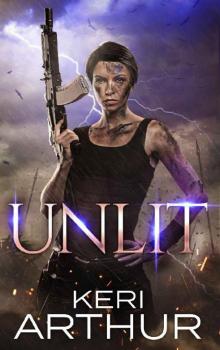 Unlit_A Kingdoms of Earth & Air Novel
Unlit_A Kingdoms of Earth & Air Novel Blackbird Broken (The Witch King's Crown Book 2)
Blackbird Broken (The Witch King's Crown Book 2)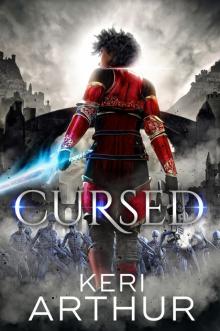 Cursed
Cursed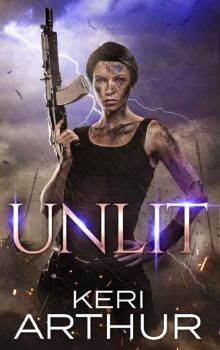 Unlit
Unlit